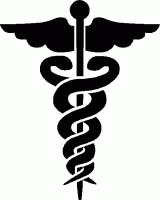 While most of the healthcare activism in Tennessee seems to be happening in Nashville, Memphis, and the state’s other big and medium-sized cities, it’s important for us not to ignore the rural areas across the state. After all, it’s in Tennessee’s rural areas where the healthcare crisis is the worst.
While most of the healthcare activism in Tennessee seems to be happening in Nashville, Memphis, and the state’s other big and medium-sized cities, it’s important for us not to ignore the rural areas across the state. After all, it’s in Tennessee’s rural areas where the healthcare crisis is the worst.
According to a new report released by the Service Employees International Union called The Value of Reform in Tennessee, the reality of the healthcare crisis is grim in Tennessee’s rural towns. In the current recession, the rural economy is losing jobs at a faster rate than the rest of the nation, and loss of jobs can lead to loss of health coverage. These hard-working folks – unemployed through no fault of their own – are forced to either go without insurance or pay out of pocket to get it. And people who have to buy insurance on their own tend to pay more for premiums, have higher deductibles, and have fewer procedures covered. One out of five rural residents spends more than $1,000 per year out of their own pocket on health services. Overall, rural residents pay 40% out of pocket for medical needs—a significantly bigger hit than other Americans absorb.
In a tough economy, those costs add up. It’s not surprising that 20% of farmers are carrying medical debts. Farmers aren’t the only rural residents dealing with this problem, either. The economic engine of small towns in rural areas is small business. Ask the owner of any small business and he or she will tell you just how hard it has become for them to find affordable coverage for employees. That means that rural residents who work at a small business have a very hard time getting health insurance through their jobs, which has traditionally been the way most Americans get their healthcare.
 Getting access to healthcare—even if you have insurance—is another growing problem for all rural residents. The entire healthcare system is dealing with a shortage of nurses and other skilled workers. Hospitals and clinics in rural areas tend to have a harder time recruiting and retaining staff. There are also fewer primary care doctors and specialists in rural regions. The result can be that people in the small towns and in the country get less care than they should. For example, rural women are less likely get mammograms according to recommended guidelines and are less likely to have had a pap smear conducted during the last three years. Obesity, diabetes, heart disease, and high blood pressure are more common among people in rural areas than in suburban and urban areas.
Getting access to healthcare—even if you have insurance—is another growing problem for all rural residents. The entire healthcare system is dealing with a shortage of nurses and other skilled workers. Hospitals and clinics in rural areas tend to have a harder time recruiting and retaining staff. There are also fewer primary care doctors and specialists in rural regions. The result can be that people in the small towns and in the country get less care than they should. For example, rural women are less likely get mammograms according to recommended guidelines and are less likely to have had a pap smear conducted during the last three years. Obesity, diabetes, heart disease, and high blood pressure are more common among people in rural areas than in suburban and urban areas.
The good news is that this summer we have an historic opportunity to start fixing these problems by reforming the healthcare system by implementing a public option plan. The choice of a public option plan is a crucial part of comprehensive healthcare reform. It is needed to bring down costs, make coverage affordable, force private health insurance companies to compete, and guarantee that quality, affordable coverage will be there for people no matter what happens. Due to an aging population and higher out-of-pocket costs, rural communities are among those that would gain the most from a public insurance option.
By leveling the playing field and making sure everyone has an affordable option that provides real coverage, even rural Americans would get the advantages of a competitive, big city healthcare marketplace. With the choice of a public option plan, rural America’s farmers, ranchers, and small business owners on Main Street can get back to the job at hand – being the engine of our economy.


